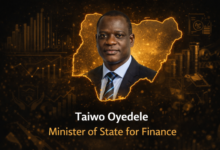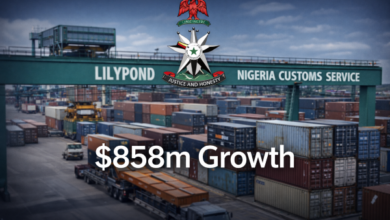Stakeholders advocate data-driven economic reforms
“Nigerian Government must look inwards and understand the way we want the country to be..."
 Some stakeholders on Thursday called for data-driven economic reforms with measurable footprints to improve the country’s Ease of Doing Business (EoDB) ranking.
Some stakeholders on Thursday called for data-driven economic reforms with measurable footprints to improve the country’s Ease of Doing Business (EoDB) ranking.
They made the call at the January9Collective (J9C) 13th Anniversary Lecture in Lagos.
BRANDECONOMY reports that the event had as its theme: ” Business and Policy Strategy: Examining the Role of Reform in Enhancing the Ease of Doing Business in Nigeria”.
Prince Adewole Adebayo, the 2023 Election Presidential Candidate of the Social Democratic Party, urged the Federal Government to carry out more fiscal reforms.
Adebayo said that such data-driven economic reforms must facilitate economic growth, drive efficiency and lead to economic stability.
He suggested metering of oil wells to gauge revenue generation.
Adebayo said that the government should meet businesses at the regulatory intersection to improve ease of doing business and also carry out reforms to improve the legal system.
“Nigerian Government must look inwards and understand the way we want the country to be, and carry out reforms based on that.
“The first reform is that the rules must not be set by players and it must be enforced by independent persons, while business people should be careful to only approach government for general rules and not specific rules.
“Economic reforms without political reforms do not work, as politics dictate the economy.
“For ease of doing business, we must also separate regulator from the regulated and make economic crimes punishable,” he said.
Adebayo added that there was need to make land matters transparent.
Dr Kayode Onafowakan, Chairman, Coleman Wires and Cables, said the event’s theme was a reflection of efforts at creating value addition to professionalism, excellence in entrepreneurship, honour and integrity.
He urged more investments in agriculture, food processing/industrial raw materials, building materials and information and communication technology.
“Investment is not sentimental, as the first primary consideration for investment decision globally is to go to where return is guaranteed but not taken for granted.
“Equally imperative is the issue of succession which is paramount for all upcoming entrepreneurs.
“Founding fathers of Nigeria’s entrepreneurs are urged to encourage their children to be part of the institutions they established so as to sustain the growth and continued existence of such institutions,” he said.
The Founder of Nairametrics, Mr Ugodre Obi-Chukwu, emphasised the need to leverage data to drive decision making about reforms.
He said that the difference between developing and developed economies was their abilities to access data, adding that businesses that harnessed data effectively did better than those that did not.
“Tax incentives are important to encourage local and foreign direct investment in Nigeria.
“The groundwork to lay to increase foreign direct investment in Nigeria include addressing fiscal deficit, driving foreign exchange reforms and exchange rate stability, which may happen this year,” he said.
Mr Segun Ajayi-Kadir, Director-General, Manufacturers Association of Nigeria, urged the government to see manufacturing as strategic to driving economic growth.
He called for data-driven economic reform policies to promote industrial development, incentivise private sector participation and allow intersectoral engagement.
“It is important to pass the four tax bills urgently and review the electricity tariff to be based on consumption.
“We urge the Central Bank of Nigeria to pay the 2.4 billion dollars of unredeemed foreign exchange,” he said.
Mrs Toki Mabogunje, a former President, Lagos Chamber of Commerce and Industry, stressed the need to modernise and properly implement reforms and enforce laws.
She noted the role of sub-nationals in driving ease of doing business in the country.
“We must also harness the value chain of Small and Medium Enterprises (SMEs) to compete globally, aggregate the mining sector and unlock export, particularly non-oil exports,” she said.
Mr Adedeji Popoola, Founder, Fina Trust Microfinance Bank, emphasised the need for SMEs to internalise business processes and have proper documentation to drive financial inclusion.
He also urged the government to do more to tackle insecurity to spur inclusive economic development.
Mr Kingsley James, Captain of J9C, said the goal of the group created in 2012, was to consistently look at the Nigerian polity and proffer solutions through engagements.










